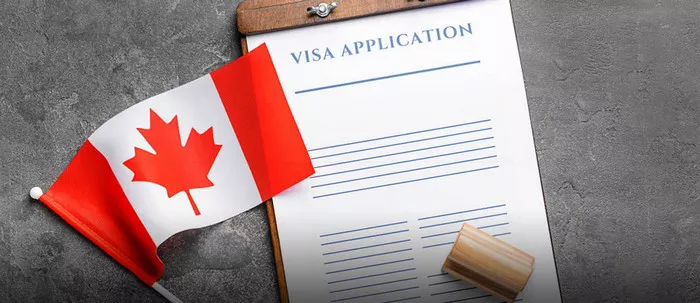As one of the most popular destinations for travelers worldwide, Canada attracts millions of visitors each year with its stunning natural landscapes, vibrant cities, and rich cultural heritage. For British citizens, the allure of exploring Canada’s vast expanses is certainly strong. However, before packing their bags and heading across the Atlantic, many Brits may find themselves asking a crucial question: do they need a visa to enter Canada?
In this comprehensive guide, we’ll delve into the intricacies of Canadian visa requirements for British citizens, exploring the various scenarios under which a visa may or may not be necessary. Whether you’re planning a short-term visit for tourism or business, or considering a longer stay for work or study purposes, understanding Canada’s visa regulations is essential for a smooth and hassle-free travel experience.
Understanding Canadian Visa Regulations
Before we delve into the specific requirements for British citizens, let’s first establish a basic understanding of Canada’s visa system. Like most countries, Canada regulates the entry of foreign nationals through a variety of visa categories, each tailored to different purposes of travel.
1. Visitor Visa (Temporary Resident Visa)
For short-term visits to Canada, including tourism, visiting family and friends, or conducting business activities, most foreign nationals are required to obtain a Visitor Visa, also known as a Temporary Resident Visa (TRV). This visa allows individuals to stay in Canada for up to six months at a time, with the possibility of extension under certain circumstances.
2. Electronic Travel Authorization (eTA)
Introduced in 2016, the Electronic Travel Authorization (eTA) has streamlined the entry process for citizens of visa-exempt countries traveling to Canada by air. Rather than obtaining a traditional visa, eligible travelers can apply for an eTA online, providing basic personal information and passport details. Once approved, the eTA is electronically linked to the traveler’s passport and remains valid for up to five years or until the passport expires, whichever comes first.
3. Work and Study Permits
For those seeking to work or study in Canada, separate permits are required. Work permits are issued to foreign nationals who have received a valid job offer from a Canadian employer and meet certain eligibility criteria. Similarly, study permits are granted to individuals enrolled in designated educational institutions in Canada.
Visa Requirements for British Citizens
Now that we’ve laid the groundwork for Canada’s visa system, let’s turn our attention to the specific requirements for British citizens.
1. Visa-Exempt Travel
Fortunately for British passport holders, Canada falls under the category of visa-exempt countries. This means that, in most cases, British citizens do not require a Visitor Visa to enter Canada for short-term stays. Instead, they can travel to Canada with an approved Electronic Travel Authorization (eTA) if arriving by air, or simply present their passport at the Canadian border if entering by land or sea.
2. Electronic Travel Authorization (eTA)
As mentioned earlier, British citizens traveling to Canada by air are required to obtain an Electronic Travel Authorization (eTA) prior to their departure. The application process is straightforward and can be completed online through the official Government of Canada website or mobile app. Applicants will need a valid passport, a credit or debit card for payment of the processing fee, and an email address for correspondence.
3. Duration of Stay
Under visa-exempt travel, British citizens are typically allowed to stay in Canada for up to six months at a time. However, the actual duration of stay granted by Canadian immigration officials is determined upon entry and may be shorter depending on various factors such as the purpose of visit, immigration history, and the discretion of the border officer. It’s important for travelers to abide by the terms of their entry and depart Canada before their authorized stay expires to avoid any immigration issues in the future.
Exceptions and Special Cases
While visa-exempt travel covers the majority of scenarios for British citizens visiting Canada, there are certain exceptions and special cases worth noting:
1. Dual Citizenship
British citizens holding dual citizenship with a country that requires a visa to enter Canada must ensure they travel with the appropriate documentation. In such cases, the traveler should present the passport of the visa-exempt country to benefit from visa-free entry.
2. Criminal Record or Inadmissibility
Individuals with a criminal record or who are deemed inadmissible to Canada for other reasons may be required to obtain a Temporary Resident Permit (TRP) or Rehabilitation before being allowed entry. It’s essential to disclose any relevant information regarding criminal convictions or past immigration violations to Canadian authorities to avoid complications at the border.
3. Extended Stays or Specific Activities
For British citizens planning to stay in Canada for longer than six months, engage in employment, or pursue academic studies, additional permits or visas may be required. Work permits, study permits, and other specialized visas are issued based on specific eligibility criteria and application procedures.
Conclusion
In conclusion, while British citizens do not need a Visitor Visa to enter Canada for short-term stays, obtaining an Electronic Travel Authorization (eTA) is mandatory for air travel. With the proper documentation and compliance with Canadian immigration regulations, British travelers can enjoy the wonders of Canada’s diverse landscapes and vibrant culture with ease. Whether it’s exploring the majestic Rocky Mountains, immersing oneself in the multicultural cityscape of Toronto, or experiencing the unique charm of Quebec City, Canada offers endless opportunities for adventure and discovery. By familiarizing themselves with visa requirements and planning their trip accordingly, British citizens can make the most of their Canadian experience while ensuring a smooth and seamless journey from start to finish.


